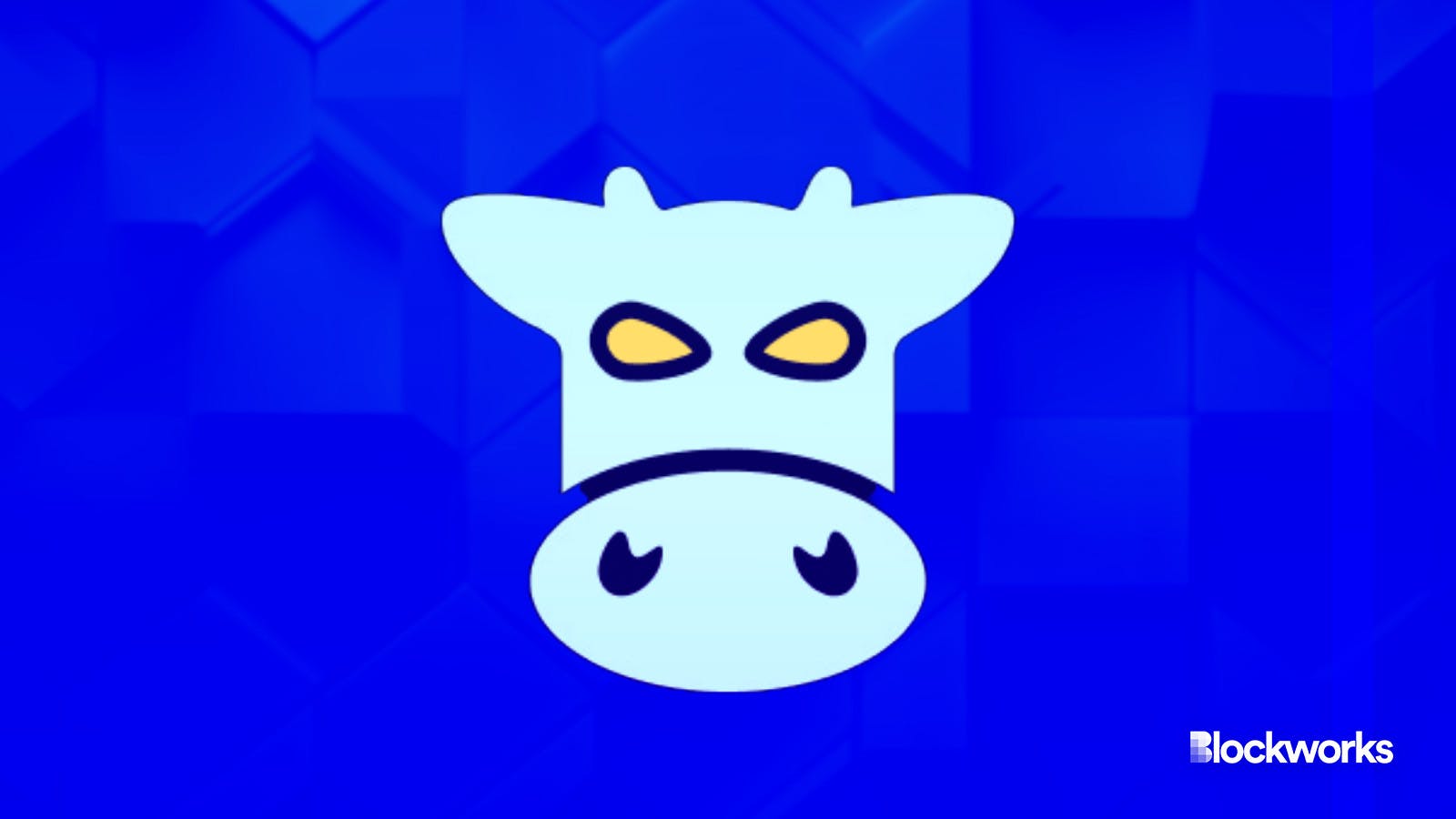CoW DAO sets up MEV-capturing AMM for liquidity providers
Loss versus rebalancing remains a major centralizing force today, but CoW AMM is designed to solve this problem

CoW DAO and Adobe Stock modified by Blockworks
CoW DAO, the decentralized autonomous organization that helped build CoW Swap, is launching an MEV-capturing automated market maker for liquidity providers called CoW automated market maker (AMM).
The CoW AMM is designed to solve the ‘loss versus rebalancing’ (LVR) or ‘lever’ problem faced by liquidity providers (LP).
Most AMMs today rely on information from other exchanges to determine the market price of an asset. This means that there can be a discrepancy between the prices listed on the AMM and those listed on the exchange.
Opportunistic traders will often use this chance to arbitrage the AMM, which leads to LPs losing value. LVR, in this instance, is defined as the loss that LPs must incur as a result of arbitrage bots rebalancing liquidity pools.
According to Andrea Canidio, a senior research analyst at CoW Swap and author of the research paper Arbitrageurs’ Profits, LVR, and Sandwich Attacks, LVR is a major centralizing force today.
“It is the main reason for the current concentration in the block builder market, where three builders create more than 70% of blocks and have great control over what transactions are included in the blockchain,” Canido said.
In fact, research from Cornell University suggests that LPs for major token pairs earn less than 5-7% on their deposits because of LVR. Arbitrageurs make up an estimated $500 million in LP losses every year, becoming a driving factor in disincentivizing liquidity provision in the decentralized finance space.
CoW AMM is designed to turn the competition into arbitrage liquidity pools that will provide an advantage to LPs.
“In Constant Function AMMs, arbitrageurs compete to be higher in a block, and the first arbitrageur rebalances the pool at the worst possible price for the LPs. In CoW AMM, alternatively, solvers compete for the right to rebalance the pool by offering better and better prices to its LPs,” he said.
After a liquidity provider deposits tokens into a CoW AMM liquidity pool, those funds become accessible to CoW Swap traders. Solvers then compete to settle trades on CoW Swap, and bid to rebalance the AMM pools whenever there is an arbitrage opportunity.
The solver that offers the most surplus is able to rebalance the pool, and thus protect LPs from MEV bots.
Anyone can deploy liquidity into the CoW AMM via programmatic orders. To kick things off the ground, the CoW DAO has allocated 6 million COW and 139 WETH to increase COW/WETH market liquidity.
Fernando Martinelli, CEO at Balancer Labs, noted in a press release reviewed by Blockworks that MEV/LVR is a key problem that is currently holding LPs back from joining AMMs.
“We at Balancer are super excited to explore custom AMM designs like CoW AMM,” he added.
Get the news in your inbox. Explore Blockworks newsletters:
- The Breakdown: Decoding crypto and the markets. Daily.
- 0xResearch: Alpha in your inbox. Think like an analyst.






